Rokeya’s relevance to Palestinian feminism
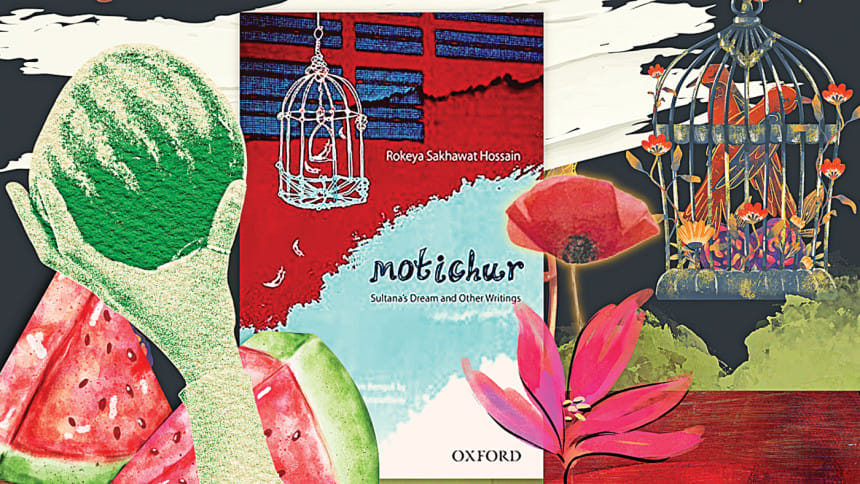
According to Merriam-Webster Dictionary (online), the first known use of the term 'feminism'–meaning promoting women's rights and opportunities–was in 1893; and the first known use of the word 'feminist'–as an adjective meaning "supporting, or compatible with feminism"–was in 1852. The word was first used as a noun in 1887–defined as "a person who supports or engages in feminism." The word 'feminist' entered the Oxford English Dictionary in 1895.
The above discussion suggests that the term feminism didn't exist in its current sense during the time of Mary Wollstonecraft (1759-97), who wrote A Vindication of the Rights of Woman (1792). But, while Wollstonecraft is regarded as a feminist and her book as a "feminist manifesto," as I mentioned in "Rokeya's feminism and cultural affiliation" (2016), the term 'feminism' (féminisme) was coined by the "founder of suffragism in France Hubertine Auclert (1848–1914) [only] in the 1880s."
Virginia Woolf (1882-1941) on the other hand, was active as a writer during the height of the suffrage campaign in Britain but distanced herself from the movement. In A Room of One's Own (1929), she even blames it for men's "extraordinary desire for self-assertion." In Three Guineas (1938), Woolf is unenthusiastic about feminism and regards it as an "inexpressive and corrupt" term.
Given this oxymoronic relationship between feminism and "feminist" writers, it is perhaps safe to observe that the word feminism was both little-known and negative before second-wave feminism in the 1960s and '70s. Unsurprisingly, Rokeya Sakhawat Hossain (1880-1932) is not known to have been identified as a feminist during her lifetime.

In an essay titled "What Is Feminism?", Rosalind Delmar defines feminism as "a concern with issues affecting women, a concern to advance women's interests." According to Delmar, this definition makes "anyone who shares this concern…a feminist, whether they acknowledge it or not." This meaning of the term 'feminist' is convincing and consistent with reality. It is in this sense that we prefix writers like Wollstonecraft, Rokeya, and Woolf with 'feminist' because of their "concern to advance women's interests" even though they did not necessarily "acknowledge" the term.
But what kind of feminist was Rokeya? Was championing the causes of women her primary concern? In my decades-long study of her work, Rokeya appears somewhat different from how she is routinely represented (as a feminist writer). Rokeya's central interest was not the promotion of the rights of women. She was concerned about issues even larger than that. She fought for the progress of the entire community, and in her view the advancement of women was a precondition for this higher, all-encompassing goal.
In her presidential speech at the conference of the Bengal Women's Education League in 1926, Rokeya regarded woman and man as two organs of the large body of society. She approvingly quoted Sheikh Abdullah of Aligarh: "How can a community, that locks half of its population in the prison of ignorance and seclusion, compete in the life struggle with other communities that have introduced women's education on an equal footing with men's?"
Rokeya tied the emancipation of women to the ultimate liberation of her society from colonialism and challenged patriarchal authority, stating: "It is insane for men to want liberation keeping their better halves confined in the house… So long our Muslim brothers do not attend to our [Muslim women's] condition, the other 220 million people of India will not listen to them, and so long those 220 million people ignore 80 million Muslims, their cries will not be heard by the British government."
She added: "Brothers think that they will achieve salvation in the hereafter for establishing some institutions like Aligarh, Dhaka University and Calcutta Islamia College; but what about women?" In Motichur-I, Rokeya makes a similar statement: "I said it before that man and woman comprise one single body. One cannot prosper leaving the other behind; and still I repeat the same truth and, if needed, will repeat a hundred times." In another place in Motichur-I, she states: "The aims and objectives of men and women are the same… In this world that nation reached the zenith of development whose men and women marched together. It is imperative that we [women] should be complementary partners of men instead of being burdens on them."
Rokeya's oeuvre contains many other comparable statements that show that her actual goal was to bring about comprehensive development of her society, not only the emancipation of women. Since dominant attitudes of misogyny stood in the way of this effort, she challenged patriarchal dogmas and practices.
Crucially, a similar philosophy runs through the vein of Palestinian feminism. As Rokeya's target was to liberate her country from colonialism and to ensure progress of the total community, Palestinian feminist activists pursue a similar goal of freeing their land from the vicious grip of Israeli occupation and thus to emancipate all, not only women.
In an article titled "Fighting on Two Fronts: Conversations with Palestinian Women" (1979), feminist scholar Soraya Antonius brings to the forefront experiences and voices of Palestinian women whose concern transcends a mere preoccupation with gender dualism. As Antonius argues: "[A]mong Palestinians there has never been a broadly-based grassroots movement for women's rights; the major efforts have been devoted to political, national ends, and the emancipation of women has come as an accidental consequence of their determination to carry out some political action."
Rokeya said again and again that women are half of society and cannot afford to lag behind. Similarly, when resistance to Israeli oppression gained prominence among Palestinians in Palestine and in exile, the same idea began to "percolate: that women constitute half the available manpower resource, one that a small, embattled nation cannot afford to waste". Again, as Rokeya was arguing that women should "go with [men] abreast in both spiritual and material lives", Palestinian women have felt the need to be "prepared to work side by side with men".
Soraya Antonius cites Palestinian woman poet May Sayigh who said:
"In Palestinian literature the mother has always been the symbol, and played the role, of the land: strong, protective…And it is a fact that the Palestinian woman dies very young…This is simply because the women are worn out, overworked and exhausted physically and emotionally…[T]he mother is no longer just generous, making coffee and baking bread, but has become the strong one who celebrates her son's death in battle by songs and who goes side by side with him through the nights of terror…. I feel the Palestine cause is mine and the work is mine…There's no birth control programme in the [Palestinian refugee] camps because women want to replace the heavy Palestinian losses."
As the Israeli occupation contributes to the systematic denial of the rights of Palestinian men and women, colonialism dispossessed and impoverished members of Rokeya's society irrespective of gender. Accordingly, Rokeya referred to the colonial subjugation and underdevelopment of her society and argued for equal opportunities for women so that they could participate in public life to ameliorate the condition of all. Likewise, anti-apartheid and anti-occupation resistance offered Palestinian women equal space in public life. Um Samir–probably the same Um Samir who together with her husband Abu Samir was killed by an Israeli airstrike in Gaza in November 2023–said to Soraya Antonius: "There's no doubt that the Resistance has improved the lot of women… I spent the battles of 1970 at a military base, sleeping there–at that stage families didn't protest against this. But before it was different."
Rokeya's land was under British colonialism and Palestinian women's is under Israeli occupation. During Rokeya's time the anticolonial struggle in Bengal was gaining strength; and for many decades Palestinian women have rejected Israeli land confiscation policies through mass resistance and struggle. Therefore, Rokeya's and Palestinian feminisms have resonances and cannot be compared to conventional, Western feminist discourses.
In In Search of Islamic Feminism (1998), Elizabeth Warnock Fernea quotes a Palestinian woman who said that Palestinian women remain busy with things like "getting their teenage children out of jail" which most of their American counterparts do not have to face or even imagine. Similarly, Rokeya's contemporary Western women didn't have to face the socio political challenges from which Rokeya and other women in British India were suffering. This brings Rokeya's feminist ideas much closer to the experiences of Palestinian women and their feminist thinking.
Md. Mahmudul Hasan, PhD is Professor of English at International Islamic University Malaysia. His essays on Rokeya have been published by Routledge, SAGE, Georgia Southern University, Orient BlackSwan, and other presses. He co-edited and contributed to A Feminist Foremother: Critical Essays on Rokeya Sakhawat Hossain (2017). Email him at [email protected].

 For all latest news, follow The Daily Star's Google News channel.
For all latest news, follow The Daily Star's Google News channel. 
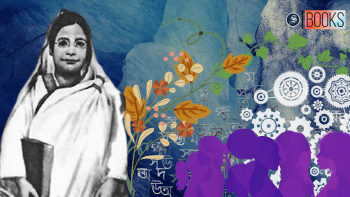
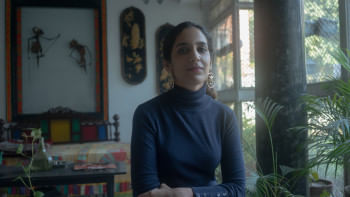



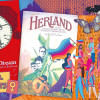

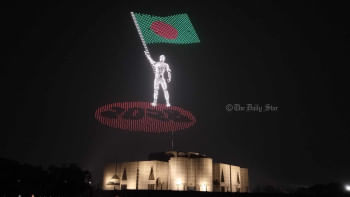
Comments